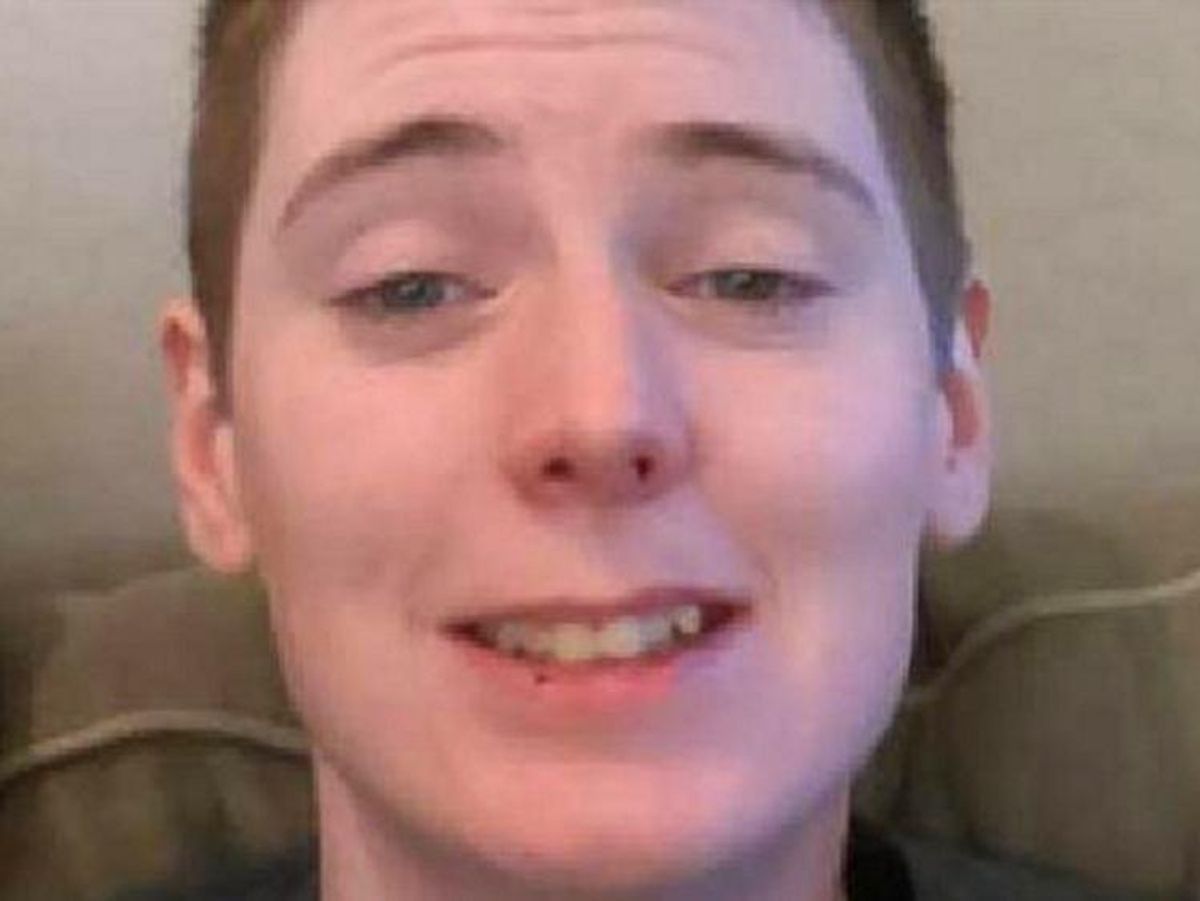Less than one week after police in Mesa, Ariz., fatally shot a 24-year-old transgender man in his home during a welfare check, activists took to the streets to declare that "Transgender lives matter, too," according to The Daily Wildcat, a student newspaper serving the University of Arizona.
Demonstrators, many of whom dressed in all black, marched through the city outside Phoenix beginning at 8 p.m. Thursday, carrying a banner reading "Rest in Power Kayden Clarke; Queers for a World Without Police," reports the student publication. Marchers included LGBT people as well as family and community members.
Clarke, who had in recent months come out as a trans man, reportedly suffered from Asperger syndrome, a form of autism in which otherwise intelligent people may lack social skills and exhibit a range of atypical behavior. Since-deleted posts Clarke made to social media also indicated that he may have struggled with additional mental health issues.
Clarke was killed by police officers February 4 after a coworker who was concerned that Clarke might harm himself called police and asked them to perform a welfare check. When two officers arrived at Clarke's residence, they claim he "lunged" at them, holding a 12-inch knife. That prompted both officers to open fire, killing Clarke.
A spokesperson for the Mesa Police Department told reporters that both officers involved -- whose names have not been released -- have been placed on administrative duty, as is standard protocol following an officer-involved shooting.
Despite Clarke's self-identification as a transgender man, local news and police reports have continued to misgender him, erroneously referring to Clarke as a "woman."
In a video he posted to YouTube in December, Clarke excitedly reported that his insurance company would cover the full cost of the clinical transition he was pursuing. A GoFundMe page reportedly set up by a family friend to help cover funeral costs says Clarke's family and employer had accepted his authentic identity, and affirmed him as the man he was.
Clarke made headlines last year when he was featured on The Huffington Post in a viral video with his service dog, Samson. Clarke trained Samson to help him when he was suffering from the symptoms of Asperger syndrome. Clarke called these symptoms "meltdowns" and they involved attempts to harm himself by, for example, banging his head on walls or hitting himself.
In 2013, Clarke became known on social media when he posted a harrowing video headlined "I Can't Fight For My Dreams Any Longer" that described how heartbroken he was to have been rejected from a vocational rehabilitation program in Glendale, Ariz., according to Clarke's statement to an advocacy group called Everyone Matters. Clarke was at first accepted into the program that would have helped him to attend college but then rejected for what he described as a form of discrimination based on disability:
"Today, they notified me that VR will be closing my case due to 'We don't think you will be successful going into this field,'" said Clarke in the statement. "Obviously I had passed. I asked why. She said, because of 'your problems.' I said, 'You mean disability regarding years of sexual, physical, emotional, trauma?' She said 'Yes, it seems like you still have issues with that.' So basically I was denied because of my disability. Now my case is closed because of my childhood. Because of my diagnosis, everywhere I get kicked to the curb. I am detailed-oriented, which is an Aspie trait. I am NOT being defiant simply because I stand there trying to process and understand your instructions due to auditory processing disorder related to Asperger's. I'm determined, I'm the hardest worker and won't give up."
Friends describe Clarke as unusually gifted in the training of animals. While she too misgendered him, his mother told the New York Daily News that Clarke was a generous person who donated Christmas trees to people in need despite being on a fixed income.
Clarke is the second trans person known to have been killed in the U.S. this year. Monica Loera was the first.
Cleis Abeni contributed to this report.



















































































